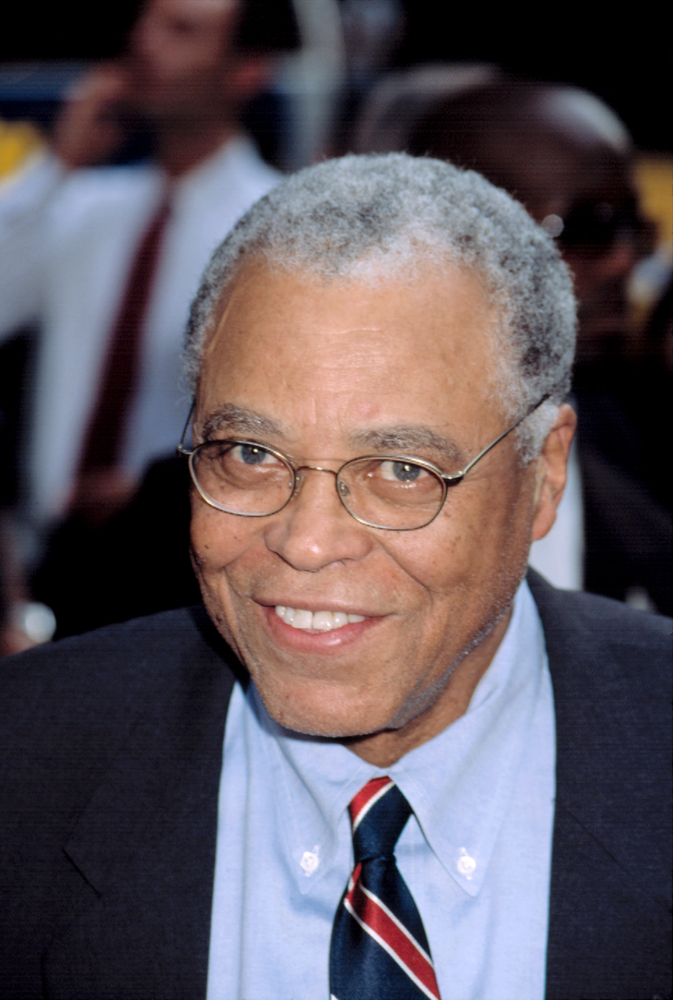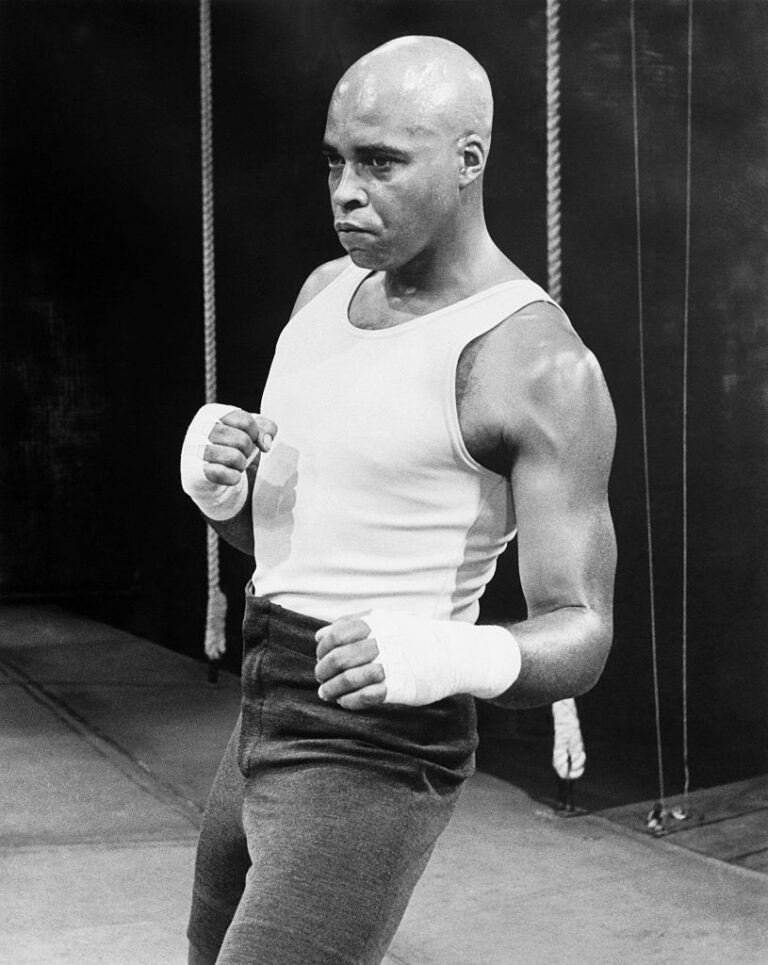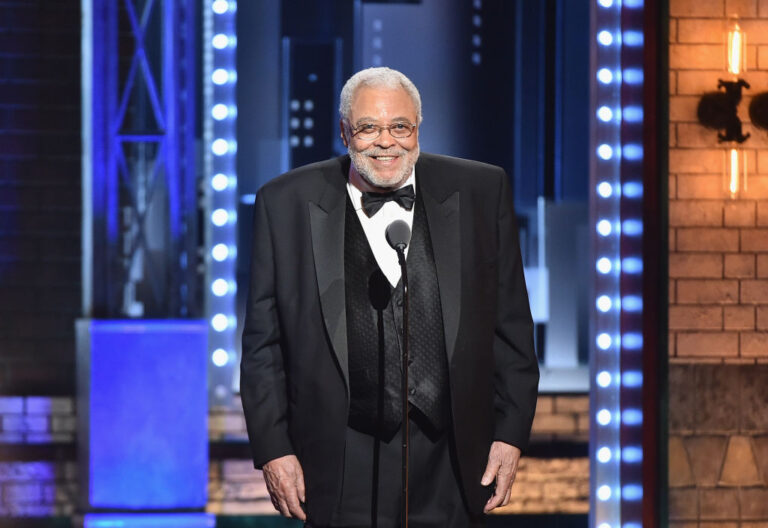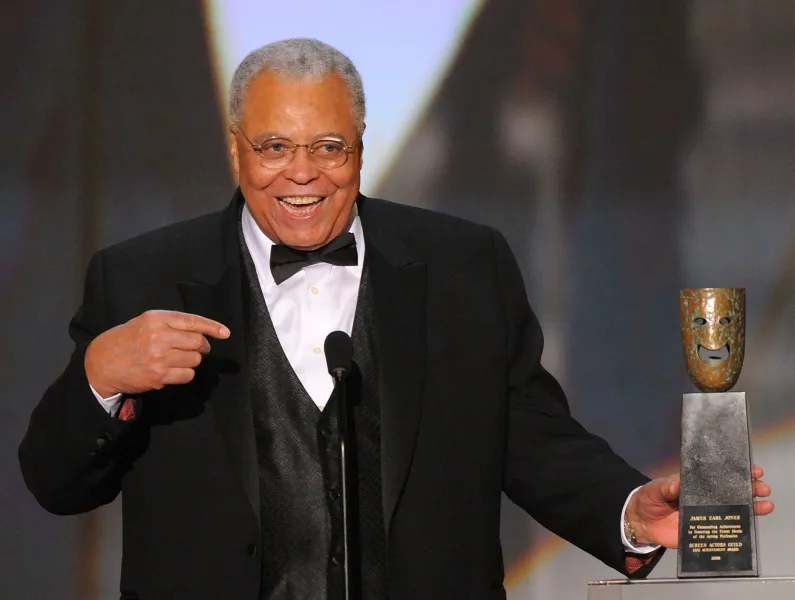
James Earl Jones, the beloved stage and screen actor who lent his iconic, deep voice to Darth Vader in Star Wars and Mufasa in The Lion King, has died at 93.
Regarded as one of the best actors of his generation, Jones’ career spanned Shakespeare to Hollywood hits. He is one of the few actors to have won an Emmy, Grammy, Oscar, Tony Award.
The actor’s death was reported by Deadline, via his representatives at Independent Artist Group.
James Earl Jones was born January 17, 1931 in Arkabutla, Mississippi and raised by his grandparents in Dublin, Michigan. While he would later become one of the most famous voices in the world, he says he suffered from a stutter in his youth.

“I was a stutterer. I couldn’t talk,” Jones recalled in a 1996 interview. “So my first year of school was my first mute year, and then those mute years continued until I got to high school.” A teacher encouraged him to overcome his stutter by reading poetry aloud.
Jones served in the US Army during the Korean War, and after decided to pursue a career in acting. He studied at the American Theatre Wing, working as a janitor to support himself. By the 1960s, Jones was establishing himself as one of his generation’s great Shakespearean actors, playing roles like Othello and King Lear. He also made his film debut in Stanley Kubrick’s classic 1964 comedy Dr. Strangelove, as bombadier Lt. Lothar Zogg.

In 1967, he played a boxer in The Great White Hope, winning the Tony Award for Best Actor in a Play. He reprised the role in the 1970 film version, receiving his first Academy Award nomination.
Amidst all his acclaimed acting work, Jones soon landed his most well-known and iconic role — one where he didn’t even have to appear on set: voicing the villainous Darth Vader in Star Wars. While Vader was played in costume by David Prowse, Jones dubbed over the lines with his own deep bass voice, helping to create one of the most famous characters in movie history.
While Jones originally opted to go uncredited for the role, it has become perhaps his most famous performance. He continued to voice Vader for decades, in the two sequels The Empire Strikes Back and Return of the Jedi, the prequel Revenge of the Sith and the spin-off Rogue One. In 2022, Jones retired from the role, but signed an agreement for his voice to be used in future projects using artificial intelligence and archive recordings.

Jones also provided the voice of another beloved movie character, Mufasa in the 1994 Disney film The Lion King. Jones later reprised the role in the 2019 remake.
Throughout the ’80s and ’90s, Jones appeared in many Hollywood films, including Conan the Barbarian, Coming to America, Field of Dreams, and The Hunt for Red October, Patriot Games and The Sandlot. He also won his second Tony Award, starring in the original production of August Wilson’s Fences.
He received eight Emmy Award nominations for his television work, winning twice in 1991: Outstanding Supporting Actor in a Limited Series or Movie for Heat Wave and Outstanding Lead Actor in a Drama Series for Gabriel’s Fire.

Jones also continued to perform on Broadway: over the past 20 years he starred in revivals of On Golden Pond, Cat on a Hot Tin Roof, Driving Miss Daisy, The Best Man and You Can’t Take it With You.
Jones was the recipient of many awards and honors throughout his acclaimed career. He received an Honorary Academy Award in 2011, making him one of the only people to have won an Emmy, Grammy, Oscar and Tony Award, known as “EGOT.” Broadway’s Cort Theatre was renamed the James Earl Jones Theatre in his honor in 2022.
Rest in peace to the iconic James Earl Jones, one of the greatest actors of our time — please share this
Horrifying moment Eddie Hall passed out doing brutal strongman challenge that most people wouldn’t dare to attempt

When it comes to Strongmen, Eddie Hall just has to be one of the most famous in Britain.
The bloke’s a legend and has delivered us with all sorts of memorable moments from knocking out two brothers in one round during his MMA debut to that time he leg pressed 1,000kg.
But the former UK’s Strongest Man doesn’t half put himself through it, that’s for sure. Like during a previous competition, when footage captured the horrifying moment Hall passed out during a brutal Strongman challenge that most people wouldn’t dare to even attempt.
The now 36-year-old was participating in the Conan’s Wheel event, titled after the famed character of ‘muscle and might’ – Conan the Barbarian.

Conan’s Wheel is tipped by Strongman as a ‘test of unrivalled endurance and strength’ that demands ‘not just muscle power but mental stamina’.
Basically, it’s a yards-long bar, fitted onto a pivot and at the end of ‘Conan’s Bar’ are typically weights that the athlete must then lift and carry around.
The dreaded challenge is now a vital component in premier strength competitions around the world but certainly isn’t for the faint hearted.
And when Hall was competing to become Britain’s Strongest Man in 2014, the video shows just what it put him through.
The commentator can be heard saying: “This is mind over matter and his mind says the pain does not matter,” as The Beast carries the bar.
As he completes full circles of the wheel, it’s noted that Hall is going slower than his competitor as they explain that with ‘his body shape, you wouldn’t expect him to do particularly well here’.
He appears to be starting to struggle as his arms start to ‘sink down to his waist’ and he’s ‘barely able to move’.
As he gets slower, Hall then drops the bar, falling to his knees and onto his back as he appears to pass out after doing 720 degrees of ‘Conan’s Circle’.

Hall collapsed to the floor. ( Giants Live STRONGMAN/YouTube)
Crew then rush over to the Strongman as he soon comes round and gets back to his feet ‘covered in paint and covered in glory’.
You certainly can’t knock Hall’s determination, it still worked out for him, as he ended up winning his first Britain’s Strongest Man title that year.
That started off an impressive run for him, as he won his fifth straight Britain’s Strongest Man competition in 2018 before retiring from the competitions shortly after. What a legend.



Leave a Reply